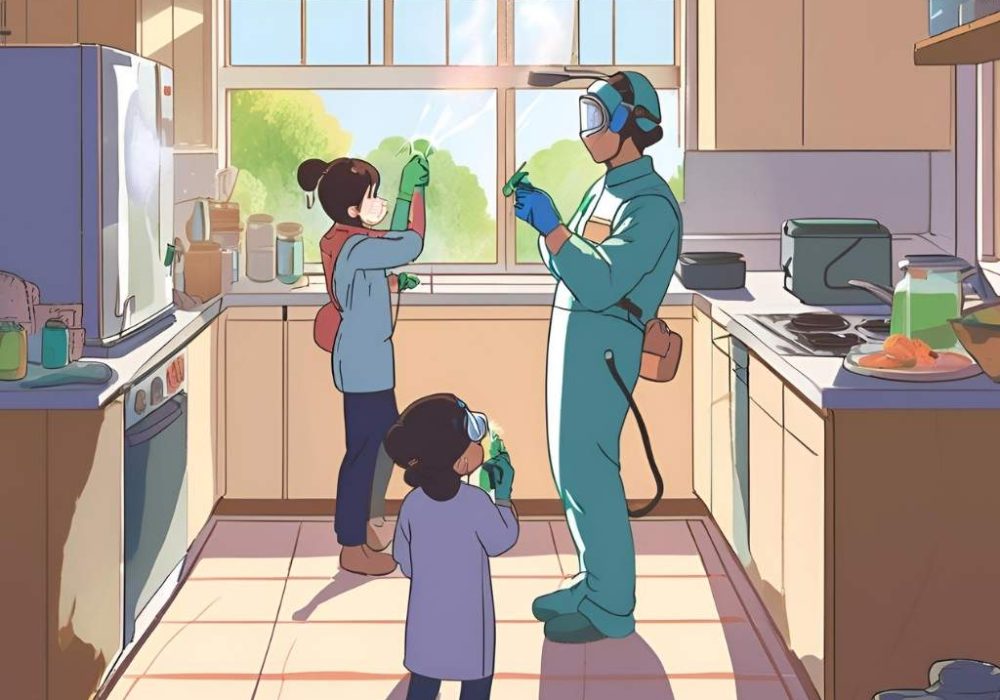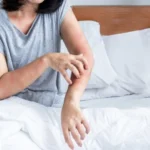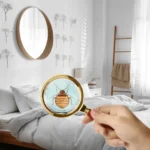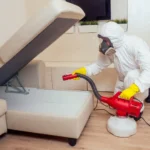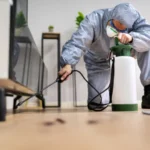Pest control is often necessary to protect homes and businesses from unwanted intruders like ants, termites, rodents, and other pests.
But when it comes to applying pest control methods, many homeowners are concerned about the safety of these treatments.
So is pest control safe for humans? The answer is generally yes—when done correctly by professionals using approved products and methods.
In this blog, we’ll break down how pest control can be performed safely and what precautions you can take to protect yourself, your family, and your pets.
Modern Pest Control Methods: Safer Than Ever
Over the years, pest control in Manchester, NH has evolved significantly. Today, many products and treatments are designed to target pests specifically while minimizing risks to humans, pets, and the environment. Modern pest control companies follow strict regulations and guidelines set by organizations like the Environmental Protection Agency (EPA) to ensure their treatments are safe.
1. Targeted Treatments
Modern pest control products are often designed to target specific pests. This reduces the likelihood of harming non-target organisms, including humans. For example, some pesticides may target an insect’s unique nervous system or biology, leaving humans unaffected.
- Why it matters: More targeted products mean fewer toxins are spread in your environment, reducing risks to your family and pets.
2. Baiting Systems
Many pest control companies use baiting systems that focus on drawing pests away and eliminating them without spraying chemicals around your home. These systems can be highly effective and safer than widespread chemical treatments.
- Why it matters: Bait systems are often kept in contained areas, minimizing human contact with pesticides.
3. Green and Eco-Friendly Options
Many pest control companies now offer eco-friendly or “green” pest control options. These treatments rely on natural ingredients or less toxic chemicals, making them safer for both people and the environment.
- Why it matters: Choosing eco-friendly pest control solutions can give you peace of mind that the products used are safer for you, your family, and the planet.
Safety Precautions During Pest Control Treatments
While pest control treatments are generally safe, it’s important to follow safety guidelines to minimize any potential risks. Whether you’re hiring a professional or using over-the-counter treatments, these tips can help keep you and your family safe.
1. Follow the Professional’s Instructions
Pest control professionals are trained to safely apply treatments and will often give you specific instructions before and after the application. Be sure to follow these directions closely to reduce any potential risks.
- Why it matters: Proper precautions—like vacating the house for a short period—ensure that you avoid exposure to any airborne chemicals.
2. Keep Children and Pets Away
During and immediately after pest control treatments, it’s crucial to keep children and pets away from treated areas. Pets and young children may be more sensitive to certain chemicals, so it’s important to limit their exposure.
- Why it matters: Pesticides can pose a higher risk to small bodies or animals with sensitive systems.
3. Ventilate Your Home
If an indoor treatment is applied, make sure to ventilate your home by opening windows and turning on fans. This helps air out any lingering chemicals and ensures that your home is safe to return to.
- Why it matters: Good ventilation reduces the chance of inhaling any fumes or residue from pest control treatments.
4. Use Approved and Regulated Products
When buying DIY pest control products, always choose those that are approved by the EPA or similar regulatory agencies. These products have been tested for safety and effectiveness when used according to label directions.
- Why it matters: Using unregulated products could expose your home to harmful chemicals not tested for human safety.
Common Misconceptions About Pest Control Safety
1. “Pesticides Are Always Harmful”
Not all pesticides are harmful to humans. In fact, many modern products are formulated to minimize risks to people and pets. As long as they are applied according to the guidelines, they can be very safe.
2. “Natural Products Are Always Safe”
While eco-friendly and natural treatments are typically safer, not all natural substances are harmless. Some natural products can still cause irritation or allergic reactions. Always ask your pest exterminator in Manchester, NH for guidance on the safest options.
3. “Pest Control Will Contaminate My Home”
Modern pest control in Manchester, NH are carefully applied to minimize exposure. When done by a licensed professional, you should not have to worry about contamination of surfaces like countertops, furniture, or bedding.
Conclusion
Pest control is generally safe for humans, especially when conducted by licensed professionals using modern, regulated products. From targeted treatments and baiting systems to eco-friendly options, pest control methods today are more focused on minimizing risks to your family, pets, and the environment. By following safety precautions—such as keeping children and pets away from treated areas and ventilating your home—you can further ensure a safe experience. Always consult with your pest control service in Manchester, NH provider to understand the safety measures they take and what you can do to protect your household.

